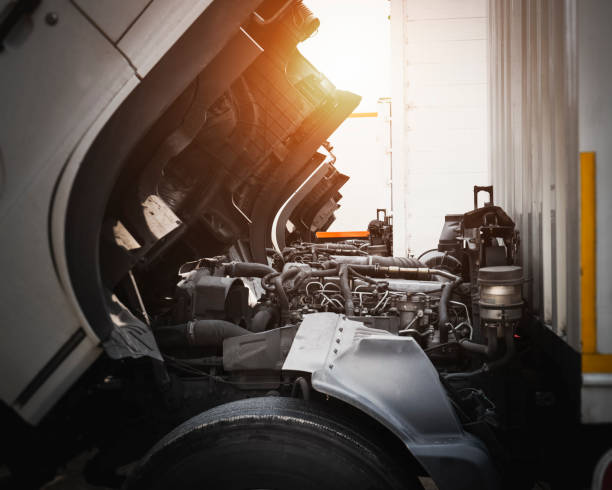
Diesel Engine Oil: The Unseen Hero Keeping Your Rig Roaring
Let’s talk about the unsung hero of your diesel engine—the stuff that’s working harder than your coffee-addicted trucker buddy at 3 a.m.: diesel engine oil. Yeah, it’s that dark, slippery liquid you dump into your crankcase every few thousand miles. But let’s get real: Without it, your engine would turn into a $20k paperweight faster than you can say “overhead camshaft.”

Whether you’re hauling a trailer up a mountain pass, idling through a construction site, or just driving to the grocery store, your diesel engine is under attack. High compression, extreme heat, metal-on-metal friction—this isn’t a gentle Sunday drive. That’s where diesel engine oil steps in. It’s not just lube; it’s a shield, a cleaner, and a temperature regulator all in one. Let’s break down why it matters, how to pick the right stuff, and why skipping that oil change is a terrible idea (even if your uncle says he “never does it”).
What Diesel Engine Oil Actually Does (Beyond “Making Noise Go Away”)
Diesel engines are beasts. They run hotter, harder, and with more pressure than their gasoline cousins. Your oil has to keep up. Here’s the day-in-the-life of good diesel engine oil:
- Lubrication: It forms a thin, slippery layer between moving parts (pistons, bearings, camshafts) so they glide instead of grind. Imagine two metal plates rubbing—now coat them in butter. That’s oil’s job.
- Cleaning: Combustion leaves behind gunk (think soot, dirt, and unburned fuel). Oil grabs that crud and carries it to the filter, preventing sludge from choking your engine.
- Cooling: While coolant handles most of the temperature control, oil soaks up heat from hot spots (like piston rings) and carries it away. No overheating = happy engine.
-
Corrosion Protection: Moisture, acids, and even salt (if you’re near the coast) eat metal. Oil coats parts in a protective layer, staving off rust and wear.

Skip the oil, and suddenly you’re not just “running rough”—you’re looking at seized pistons, warped valves, or a blown head gasket. Fun times? Definitely not.
Viscosity Matters: Why “15W40” Isn’t Just a Bunch of Letters
Ever wonder what that “15W40” on your oil jug means? It’s not a secret code—it’s a viscosity rating. Viscosity is how thick the oil is at different temperatures, and it’s critical for diesel engines.
- The “W” stands for Winter: The first number (15) is the oil’s thickness in cold weather. Lower numbers (like 5W) flow better in subzero temps, preventing “stiction” (when oil gets too thick to circulate).
- The second number (40) is for heat: This is the oil’s thickness at 212°F (your engine’s operating temp). Higher numbers (like 50) are thicker, which is great for high-load engines (towing, heavy hauling) but might be overkill for daily commuting.
Most diesel engines (especially older ones) love 15W40. It’s a middle ground—flows well in cold starts, stays thick enough when things heat up. But newer engines? Some need 5W40 or even synthetic blends. Check your owner’s manual—yes, that dusty thing in the glove box. It does have answers.
Synthetic vs. Conventional: Which is Worth the Splurge?
Here’s the tea: Not all diesel engine oil is created equal.

- Conventional oil: Cheaper upfront, made from crude oil. Good for engines with simple designs or low-mileage use (think farm trucks that sit most of the year). But it breaks down faster under high heat or heavy loads.
- Synthetic oil: Pricier, but engineered molecule-by-molecule for better performance. It resists breakdown longer, flows smoother in cold weather, and protects better at high temps. If you’re hauling, towing, or live in a place with wild temperature swings (looking at you, Canada), synthetic’s worth the extra cash.
- Blends: The best of both worlds—part synthetic, part conventional. Good for drivers who want better protection than conventional but don’t need full synthetic’s extreme performance.
Pro tip: If your engine has over 100k miles, some synthetics (like AMSOIL Signature Series) can actually clean out existing sludge. Your mechanic might thank you.
When to Change It (Hint: “When It’s Black” Isn’t a Good Rule)
Ever heard someone say, “Change your oil every 3k miles”? That’s old-school advice—for gas engines. Diesel engines are different. Modern oils (especially synthetics) last longer, but your oil’s lifespan depends on how you use your truck:
- Normal use: 7,500–10,000 miles or 6 months (whichever comes first).
- Heavy use: Towing, plowing, idling in traffic? Cut that to 5,000–7,500 miles.
- Severe conditions: Extreme heat, cold, or dusty environments? Maybe every 3k–5k.
But don’t just go by mileage. Check the oil level and color regularly. If it’s gritty (like coffee grounds) or low, it’s time. And never push it past the manufacturer’s recommendations—your engine’s warranty might depend on it.
The Biggest Diesel Oil Myths (Debunked)
Let’s squash some nonsense:

- Myth #1: “Thicker oil is better.” Nope. Using 20W50 in an engine that calls for 15W40 can cause low oil pressure, starve parts of lubrication, and even damage seals. Stick to the manual.
- Myth #2: “Oil never needs changing if you top it off.” Wrong. Oil degrades over time—additives break down, contaminants build up. Topping off is like adding water to a soup that’s been sitting out—you’re just diluting the good stuff.
- Myth #3: “All oils are the same.” See the synthetic vs. conventional section. Nope. Your engine’s performance (and lifespan) depends on it.
Wrapping Up: Your Engine’s Best Friend Deserves Respect
Diesel engine oil isn’t glamorous. It doesn’t have flashy ads or cool hashtags. But without it, your engine is just a pile of metal waiting to seize. Whether you’re a weekend warrior with a pickup or a full-time trucker, choosing the right oil and changing it on time is the cheapest, easiest way to keep your rig running strong for years.
So next time you’re under the hood, take a second to appreciate that black gold sloshing around. And when it’s time for a change? Do it. Your engine (and your wallet) will thank you.
Now go grab that jug of 15W40 (or whatever your manual says) and show your diesel some love. It’s earned it.

